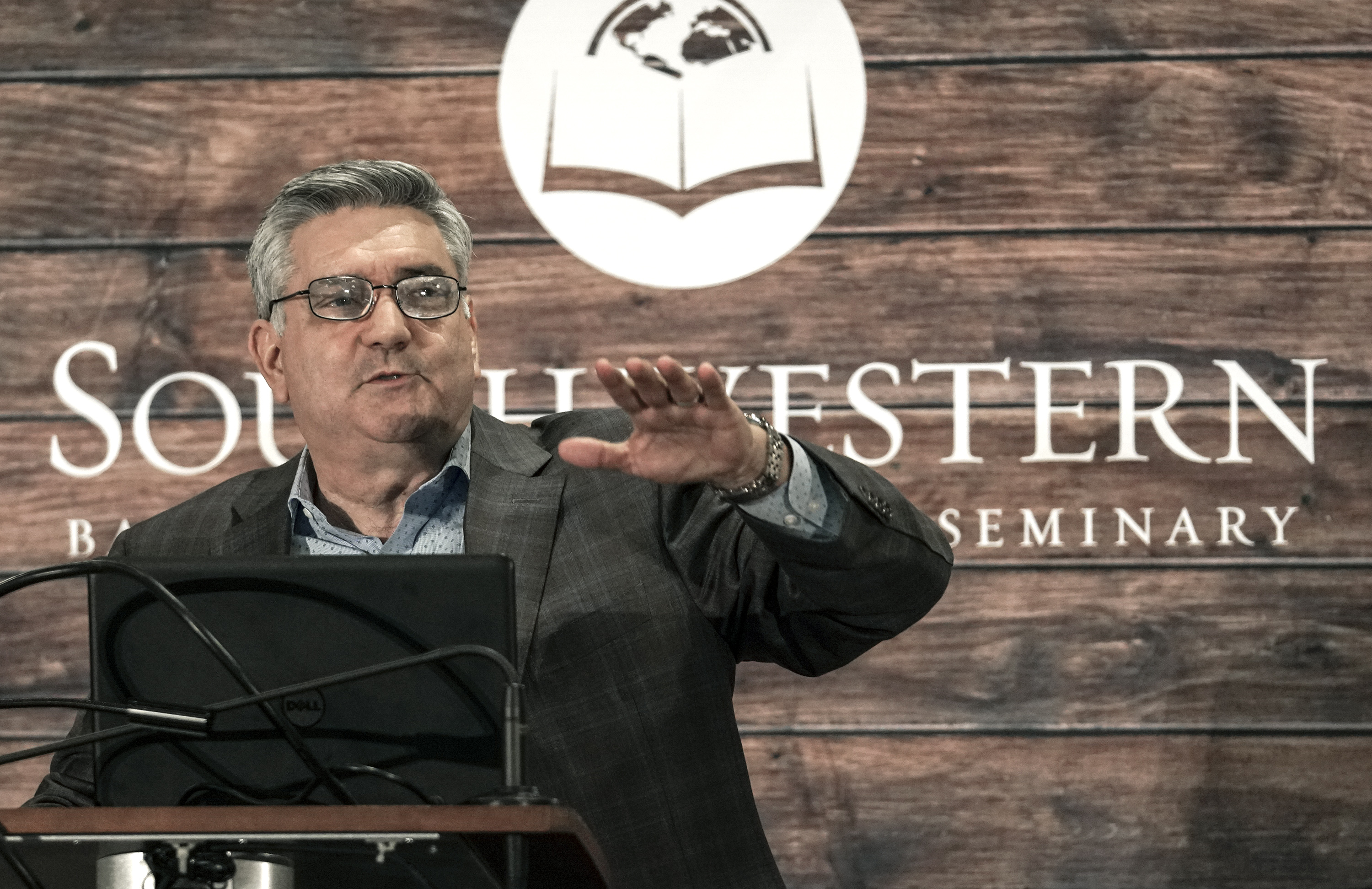
PHOENIX (BP) — Having worked with each of this year’s Pastors’ Conference speakers earlier this spring on their preaching through the book of Philippians, David Allen noted text-driven preaching is expository preaching “as it should be done.”
 Allen, dean of the School of Preaching at Southwestern Baptist Theological Seminary, led the Text-Driven Preaching Workshop Sunday (June 11) as the official pre-conference workshop of the Southern Baptist Convention’s annual Pastor’s Conference in Phoenix.
Allen, dean of the School of Preaching at Southwestern Baptist Theological Seminary, led the Text-Driven Preaching Workshop Sunday (June 11) as the official pre-conference workshop of the Southern Baptist Convention’s annual Pastor’s Conference in Phoenix.
“Over the years,” Allen said, “the term ‘expository preaching’ has become so elastic that it has been stretched into infinity, and all kinds of preaching fall under it.” This reality necessitated Allen’s use of a different term — text-driven preaching.
Allen said text-driven preaching is not just a type of preaching, but rather a philosophy and a method. Specifically, Allen defined text-driven preaching as “the interpretation and communication of a biblical text in a sermon that represents the substance, structure and spirit of the text.”
The substance of a text, Allen said, is “what the author is talking about” as well as “what the author is saying about what he is talking about.” The structure, meanwhile, refers to grammatical, syntactical and semantic structure; and spirit refers to both the genre and the emotive “feel” of a given text.
According to Allen, a text-driven preacher does not preach sermons; he preaches texts. A text-driven sermon, then, should meet two criteria.
First, it should be based on a text of Scripture (the text is the source for the sermon, Allen said, not a resource).
Second, the sermon should expound the meaning of the text (that is, the sermon should be derived from and develop the text). Essentially, then, text-driven preaching means saying the same thing the text of Scripture says.
Allen provided a brief illustration of this preaching philosophy with 1 John 2:15-17. Noting that this text contains only one imperative, Allen said the primary point of the passage is found at the beginning of verse 15: do not love the world or anything in the world. John then provides two supporting points: it is impossible to love both God and the world, and the world is passing away. The former point, Allen noted, is further supported by an additional point — namely, that the things of the world come not from God but from the world.
Allen said this outline of the text must be the outline of a text-driven sermon on this text. In other words, a text-driven sermon on 1 John 2:15-17 can only have one main point, plus two supporting points (one of which has its own supporting point).
Preaching the passage this way, Allen said, means preaching the Word of God as inspired by the Spirit of God.
All kinds of preaching — Christ-centered, doctrinal, etc. — must be rooted in text-driven preaching, Allen said. “Everything hinges on this, because the text is king,” he explained.
For additional information on text-driven preaching, as well as preaching resources including sermon structures (such as the 1 John 2:15-17 outline), visit preachingsource.com.















